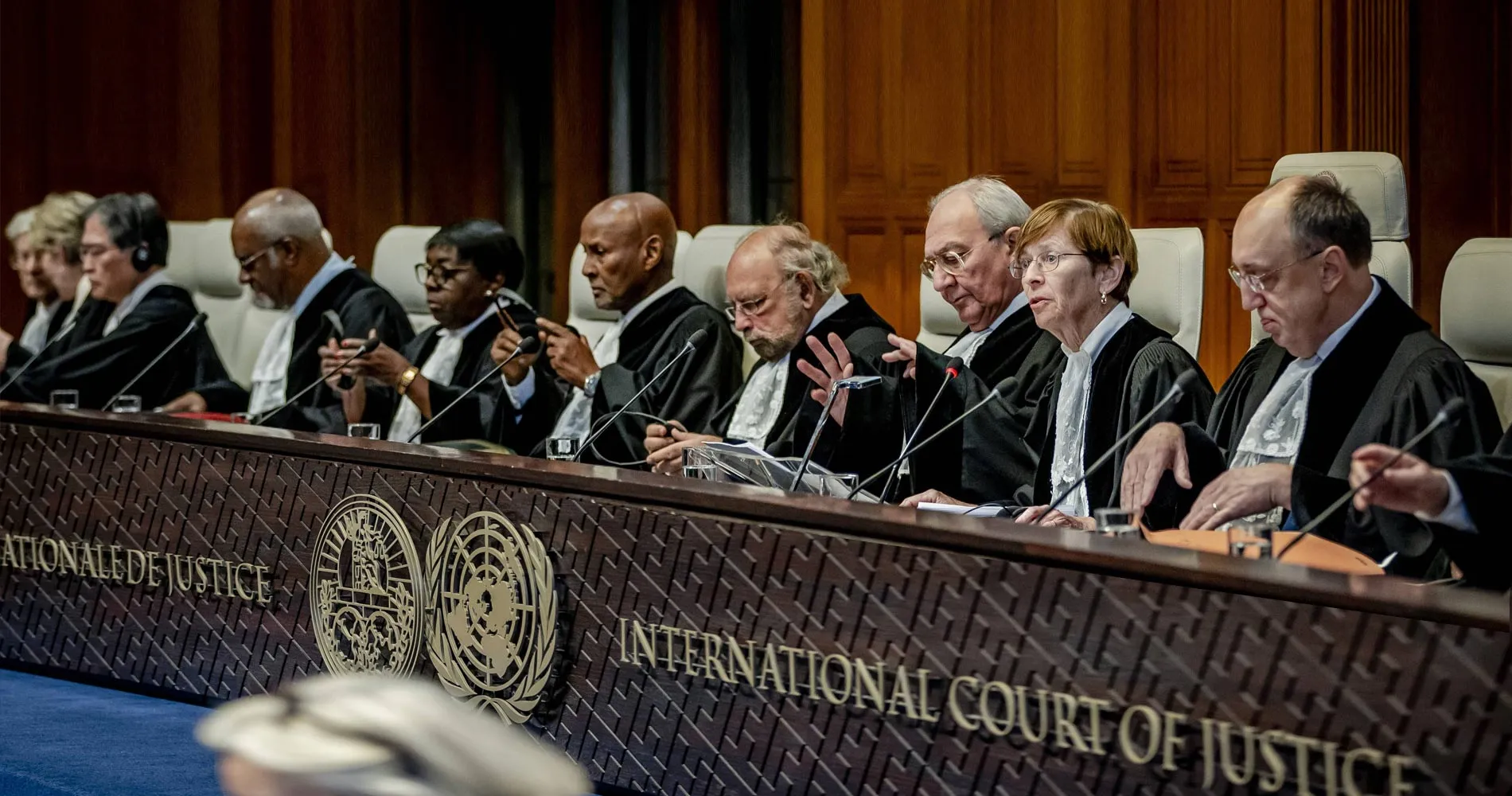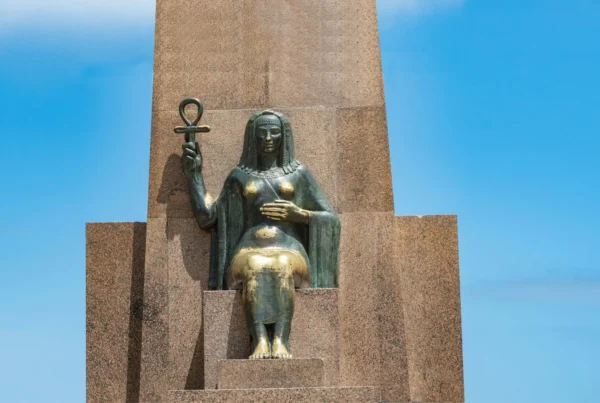Uganda’s judge at the ICJ, Julia Sebutinde, was the only judge who voted against all six approved measures in the interim ruling by the ICJ in favor of South Africa. By doing this she went further than even Israeli-appointed Judge, Aharon Barak, who dissented on four out of the six measures. Her vote was in stark contrast to her previous stance in similar cases, including the 2022 Ukraine-Russia case where she voted in favor of all provisional measures, which included a demand for an immediate cessation of Russia’s military operations in Ukraine.
Meric Sentuna Kalaycioglu
25 March 2024
Arabic version | German version | Spanish version
On 29 December 2023, South Africa requested the International Court of Justice (ICJ) to issue interim measures demanding that Israel cease its military operations and stop the genocide in Gaza. This legal maneuver not only highlighted South Africa’s commitment to international justice but also set in motion a legal battle with the potential of reshaping the narrative surrounding Israel’s actions in the Middle East.
The ICJ’s ruling on 26 January 2024 marked a significant juncture in the Israeli-Palestinian conflict. Although the Court did not order a ceasefire or a halt to military action in Gaza, the interim order acknowledged the plausibility of South Africa’s claims, urging Israel to cease obstructing aid deliveries into Gaza and take action against direct incitement to genocide. The Court approved six provisional measures, one of which obliged Israel to protect Palestinian civilians from harm and ensure their basic rights.
Ugandan-appointed Judge, Julia Sebutinde, was the only judge who dissented on all six approved measures, going further than even Israeli-appointed Judge, Aharon Barak, who dissented on four out of the six measures.
Sebutinde’s dissent is noteworthy as it is in contrast to her previous stance in similar cases, including the 2022 Ukraine-Russia case where she voted in favor of all provisional measures, which included demanding an immediate cessation of Russia’s military operations in Ukraine.
Uganda quickly distanced itself from Sebutinde’s position. The Ministry of Foreign Affairs of Uganda issued a statement reaffirming Uganda’s alignment with decisions made at the 19th Summit of Heads of State and Government of the Non-Aligned Movement (NAM), held in Kampala on 19-20 January 2024 condemning Israeli military actions in Gaza and advocating for humanitarian assistance and reconstruction efforts. The statement also emphasized that judge Julia Sebutinde’s opinion on the matter is her own and does not represent the official position of the Government of Uganda.
Uganda’s Permanent Representative to the United Nations, Adonia Ayebare, wrote on X “Justice Sebutinde ruling at the ICJ does not represent the Government of Uganda’s position on the situation in Palestine.” By disassociating itself from Sebutinde’s vote, Uganda effectively positions itself as a country urging Israel to stop killing innocent civilians in Gaza.
Yet despite her country’s public withdrawal of support, Judge Sebutinde was elected as vice-president of the ICJ shortly after the interim ruling.
What relationship does Uganda have with Israel? Understanding the historical connection between the Zionist movement and Uganda culminating in strong military, cultural and religious ties between the two countries is essential.
In 1903, the British proposed the Uganda Scheme which foresaw Uganda as a potential homeland for Jewish people British Colonial Secretary Joseph Chamberlain proposed the Uganda Scheme to Theodore Herzl. The proposal was rejected by the Seventh Zionist Congress in 1905.
During Iraeli Prime Minister Levi Eshkol’s visit to Uganda in 1966, an engaging image was captured at a Ugandan military facility. Miriam, the wife of Eshkol, is seen dancing alongside Idi Amin, then the commander of Uganda’s armed forces. Amin would later seize power in a coup and implement a harsh anti-Israel stance. He presided over Uganda during the infamous 1976 Israeli operation in Entebbe.
Since assuming power in 1986, Ugandan President Yoweri Museveni has made two visits to Israel, with discussions in 2003 focusing on arms deals. Museveni’s 2011 trip was facilitated by Rafi Eitan, a former Mossad agent with investments in Uganda.
In 2016, Prime Minister Benjamin Netanyahu’s Africa tour, marked a historic moment, being the first visit by an Israeli prime minister to the continent in decades. After his visit, Chabad, one of the world’s best-known Hasidic movements, established a permanent Jewish center in Kampala in November 2017, a significant milestone marking Uganda as the 100th country to host a Chabad center. Since then, Netanyahu has made four more visits to Uganda.
The bond between Uganda and Israel goes beyond religious and cultural connections. Over the last decade Uganda and Israel have deepened ties in various other sectors including military cooperation. In September 2022, the two nations signed a defense memorandum, emphasizing ongoing military cooperation despite criticism in the country over the procurement and use of Israel’s Pegasus hacking software.
In November 2021, the US blacklisted the Israeli NSO Group, the company which created Pegasus, stating that the tool is being used to target government officials, dissidents and journalists worldwide. Uganda has used Pegasus to spy on journalists, human rights activists and lawyers and during the 2022 general election.
The interplay between historical and present alliances and the dissent of Judge Sebutinde on the ICJ panel highlights the strong connection between Israel and Uganda. It also raises questions as to why the same judge would make such opposite rulings on similar cases, siding with Ukraine, the victim of aggression on the one hand, and with Israel, the aggressor against the civilian population of Gaza, on the other.
International law must remain free of political and/or personal allegiances and its dispensation must be fair, equal and consistent. As it stands now, one cannot help but wonder if the decision rendered by Judge Julia Sebutinde was a discriminate dispensation of justice?







